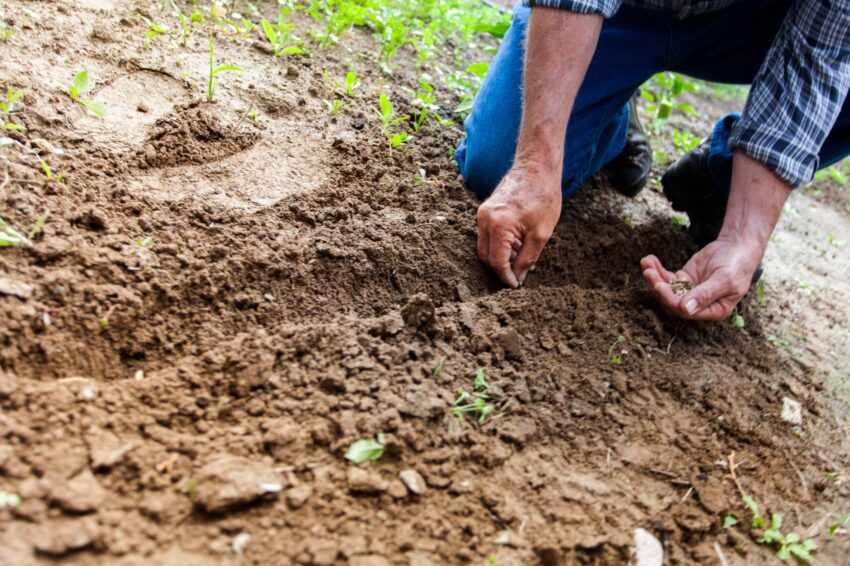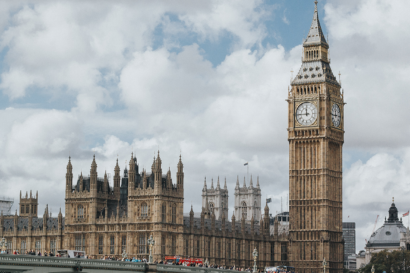AG INSIGHT | 14/06/2023
Where are we with ELM?

Alice Groom is Head of Sustainable Land Policy at RSPB, leading RSPB England’s Sustainable Land Policy team that covers agriculture, uplands and water.
It’s almost exactly seven years since the UK voted to leave the EU, and with it the Common Agricultural Policy (CAP). For the first time in 40 years the UK countries could define their own domestic agricultural policies.
England’s efforts got off to a good start in 2018 when Defra committed to a new domestic policy framework that worked for farmers, for nature and delivered value for the taxpayer – something the CAP had not previously achieved.
The central focus of these reforms has been the seven year transition away from direct payments to a new set of Environmental Land Management schemes (ELMs). The phase out of direct payments began in 2021, and consequently the farming sector began to clamour for details of ELMS. However, Defra struggled to deliver in those early years and has been playing catch up ever since.
Key to the long-term success of the ELM schemes is that they are attractive, effective, and deliverable. This is vital to ensure that farmers want to engage with these schemes and that Government can deliver them. They must also make significant contributions to domestic and international environmental commitments. ELM is a key delivery mechanism for restoring nature and adapting to climate change. Grappling with the loss of biodiversity and depletion of soils is one of the biggest issues facing farming and our long-term food security. There is a lot riding on getting these schemes right.
Defra is now in a place where it can provide more details on the three ELM schemes, the Sustainable Farming Incentive (SFI), an iterated form of Countryside Stewardship (CS) and Landscape Recovery. Yet as Defra has worked to finalise these offers, the focus has turned to achieving higher uptake, and what appears to be getting lost is ensuring that high uptake translates into genuine environmental delivery. This is the old CAP trap.
So, the SFI 2023 offer will provide free choice to farmers, with any bundling of actions and ambition levels removed to avoid barriers to entry. This is despite the clear evidence that complete free choice undermines the efficacy of schemes. Defra has also come under a lot of pressure to look at payment rates, and in the absence of a payment strategy has made a few short-term decisions which could have longer term consequences for value for money and actually disincentivise some of the more ambitious actions. This includes the SFI management fee, which is a payment of up to £1000 for just signing up to the scheme.
At the same time, Defra has not put the same level of focus and effort into ensuring there is a stretching offer available for those farmers already doing the most they can for nature, and those clamouring to do more. ELM needs to be able to secure the management of protected sites, to reward those who manage critical habitats such as hay meadows, heathlands, and wetlands and those that take action for threatened and range restricted species that need bespoke management such as turtle dove, stone curlew and cirl bunting.
There currently isn’t a workable ‘higher level’ offer. The Higher Tier of CS can only cope with c.300-500 agreements a year, and so Defra has had to fall back on rolling over legacy Higher Level Stewardship agreements. The stakes are high as these cover about 1.4 million hectares of land including large areas of Sites of Special Scientific Interest SSSI. A lack of HLS roll overs could lead to large areas of land falling out of management, or could mean rolling over inappropriate management, as seen in Dartmoor.
On a more positive note, Defra has launched a second round of Landscape Recovery pilots and is looking to add 25 new projects to the 21 already underway. These projects could help to secure public and private funds to restore large tracts of habitat, helping to store carbon, manage flood risk and recover nature whilst providing public access, jobs and investment in rural areas.
It is understandable that Defra has chosen to focus on uptake in the face of a cost-of-living crisis that is placing pressure on the farming sector. But whilst this will help tackle the short-term challenges, it could undermine the long-term success of these reforms. After all, nature friendly farming is more resilient and can be more profitable.
What we need now is a structured plan from Government to ensure these future farming reforms are not just popular in the short term, but effective in meeting the longer-term challenges farming and society face. There is an important role for business in supporting this direction of travel.
The plan requires:
- A clear focus on supporting farming and food production that is in line with meeting nature and climate targets.
- Long-term commitment to a budget that meets the scale of the environmental challenges we face, and a payment strategy to ensure this money is used wisely to reward the delivery of public goods.
- A set of schemes that will unleash a nature and climate friendly farming revolution, and make a truly meaningful commitment to nature and climate goals.
- Effective farming regulation to set a new standard for the sector.
- Wider supporting efforts to ensure farmers can receive a fairer return from the market, and that they are not undercut by cheaper imports produced to lower standards.
With a firm and effective plan, we can have a resilient and thriving farming sector that plays its part in tackling the nature, climate and public health crises we face.



